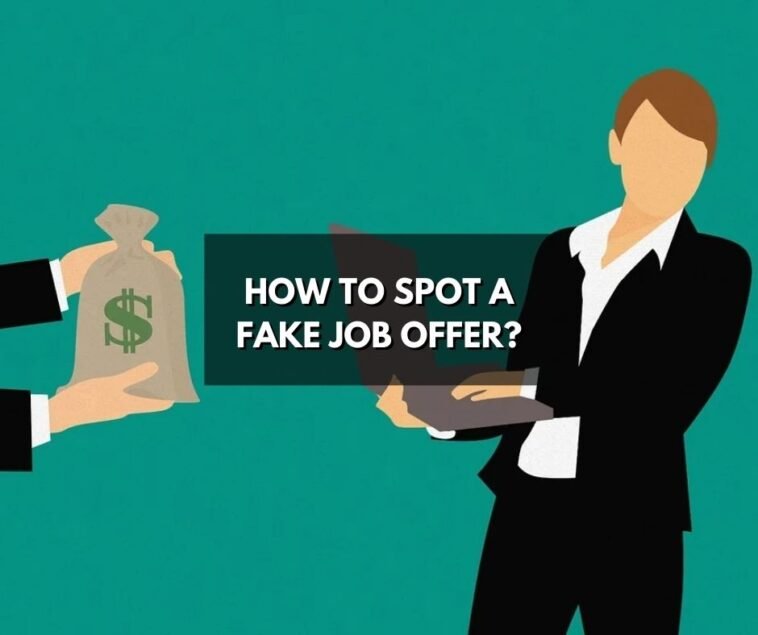Wouldn’t it be great to receive an email with a productive job offer without having to search, apply, interview, and negotiate? However, it can only happen in your dream or imagination because if you receive such kinds of emails there is a high chance that it is a scam.
We all are aware that in this internet era, scams have become an everyday creative work. Do you know these days most of the scammers portray recruiters or HR managers and send you fraudulent emails to offer a job? They will reach you for a job opportunity to obtain your personal information and bank details.
To make you aware of how you can avoid fraudulent job offers, we have provided you with information.
1. Did you receive the job offer unexpectedly?
Did you get a job proposal though you don’t remember applying for it? Did you get a phone call proposing you a big amount to work part-time from home? Or did they claim that they saw your resume on a job site that you’ve never posted your information on before? All these are red flags to be aware of. There is a high possibility that it is fraudulent. Because we all know prominent companies will always have a process for recruiting.
2. Is the company real?
Don’t forget to research when you get a job offer. Try to check if they have a website and contact details. If they don’t have a website or a social media page be very careful. Or if you found the website, then recheck the contact details with the one provided on the offer letter. If the company is not listed by other job seekers, you can browse the web to see if it has been reported.
3. Was the job offer sent from a personal email address?
Prominent companies and organizations have their corporate email addresses. Do not forget to check the email’s domain before proceeding if it is a free domain such as Yahoo or Hotmail.
Often, a scam email will resemble has a company domain, but closer examination will reveal certain differences. As an example, you might see an email coming from “…@srz-design.org” instead of “…@srzdesign.org”.
4. Is the email requesting confidential or bank information?
Scammers can request bank account and personal information to set up direct deposits. Beware of such requests.
5. Is this an official email?
How well written is the email? Are there any grammatical or spelling errors? Does the email have a company signature? Does the job description sound professional? Does it mention what experience or skills are required? In the job description, whether you received it in an email or found it on a job site or through social media, be sure to include all the general requirements.
Please Subscribe Us to get updated with Qatar News, Saudi News, Kuwait News, Health News, UAE News, Iqama, Visa, Jobs, Banking and More.



